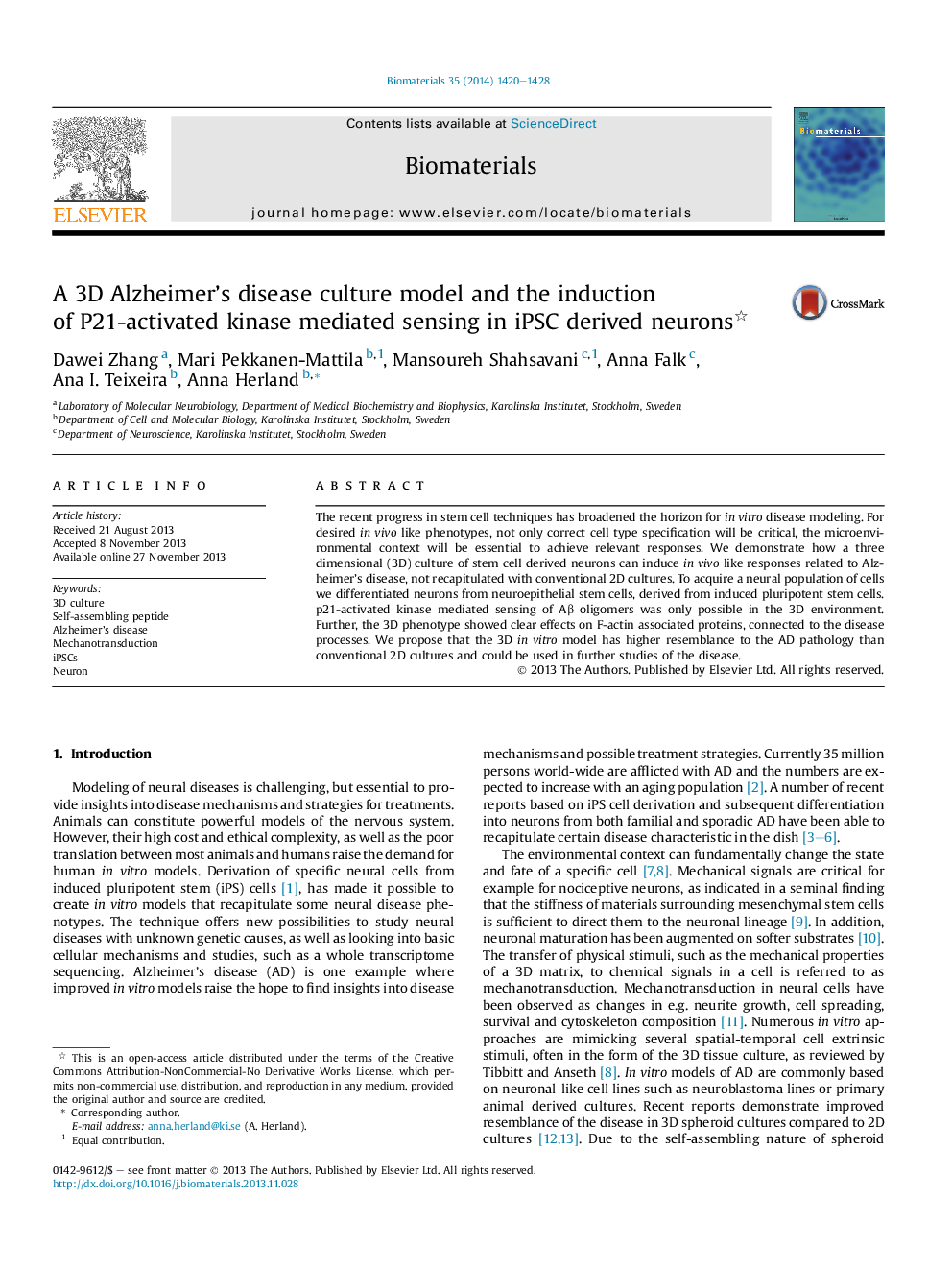| Article ID | Journal | Published Year | Pages | File Type |
|---|---|---|---|---|
| 10227422 | Biomaterials | 2014 | 9 Pages |
Abstract
The recent progress in stem cell techniques has broadened the horizon for in vitro disease modeling. For desired in vivo like phenotypes, not only correct cell type specification will be critical, the microenvironmental context will be essential to achieve relevant responses. We demonstrate how a three dimensional (3D) culture of stem cell derived neurons can induce in vivo like responses related to Alzheimer's disease, not recapitulated with conventional 2D cultures. To acquire a neural population of cells we differentiated neurons from neuroepithelial stem cells, derived from induced pluripotent stem cells. p21-activated kinase mediated sensing of Aβ oligomers was only possible in the 3D environment. Further, the 3D phenotype showed clear effects on F-actin associated proteins, connected to the disease processes. We propose that the 3D in vitro model has higher resemblance to the AD pathology than conventional 2D cultures and could be used in further studies of the disease.
Related Topics
Physical Sciences and Engineering
Chemical Engineering
Bioengineering
Authors
Dawei Zhang, Mari Pekkanen-Mattila, Mansoureh Shahsavani, Anna Falk, Ana I. Teixeira, Anna Herland,
